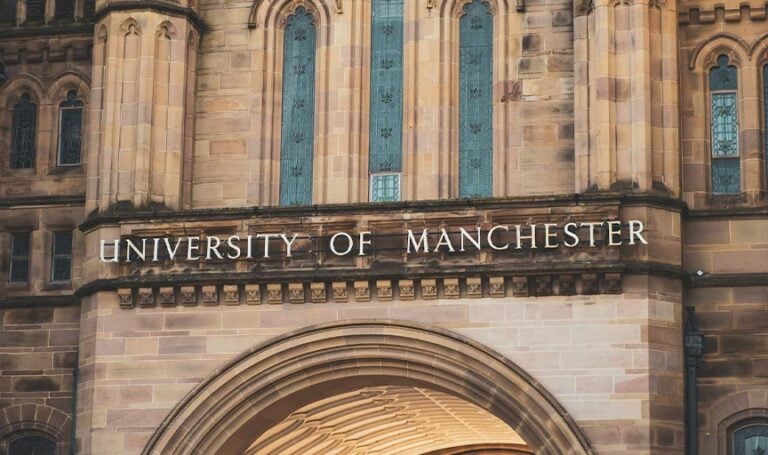Female students fear harassment after all-male committee form pro-life society in Manchester
Over the past month, the University of Manchester has become a battleground for ideological clashes after an all-male committee established a pro-life society, eliciting fears and safety concerns among female students. With over 15,000 signatures on a petition voicing apprehensions, the formation of this society has stirred a contentious debate about restricting abortion rights in the UK, freedom of speech, women’s rights, and the potential ramifications for female students on campus.
The society’s inception, as declared on the university’s Students’ Union (SU) website, is to “create a pro-life culture on campus.” While this statement may seem harmless to some, many female students argue that this society has stigmatised women and even made them feel unsafe. The concerns are not limited to ideological differences but extend to the potential impact on the well-being and safety of female members.
In an in-depth piece on the matter for The Independent, journalist Athena Stavrou spoke to Heather Bowling, a second-year linguistics student who expressed her dismay at the SU’s response, telling the publication that it “directly enables misogynistic hate speech” and criticising the union’s weak stance. Bowling also highlighted the emotional toll this decision has had on female students, with messages pouring in from those who fear for their safety.
The student went on to argue that universities should be centres of progression, questioning why the school was being so lenient with societies that debate women’s bodily autonomy and rights, an inherently regressive strategy.
“My heart dropped [when I saw the society]—it felt like I was at the beginning of a new Margaret Atwood novel. Don’t get me wrong, I am all for having different political views, but I think women’s bodily autonomy is not up for debate. I have also had messages from multiple women who have been through abortions and felt personally victimised and threatened by the presence of society on a university campus such as this,” Bowling further told The Independent.
A former student who also spoke with Stavrou revealed how she had had an abortion in 2023 and expressed how she would have been “driven mad” if the society had existed during that emotional time: “While I knew it was unfeasible [for me to have a baby] the constant stream of guilt from people who aren’t in similar circumstances made it so difficult. I kept thinking ‘I am a murderer or evil like people say’,” she told The Independent.
Despite this, the SU, constrained by legal frameworks such as the 1994 Education Act, the 2010 Equality Act, and section 43 of the 1986 Education Act, finds itself unable to block a society based on its beliefs, even if those beliefs are contrary to the views of other students. The newly implemented freedom of speech legislation further complicates the situation, creating tensions with existing equalities legislation.
Other students have suggested that the society could lead to the harassment of women seeking abortions at the university. The concerns extend beyond ideological differences, focusing on the societal implications and potential psychological impact on women who have undergone abortions. The fear of societal guilt and judgment is particularly pronounced among those who have experienced abortion firsthand.
Frances M. Beal, also known as Fran Beal and the author of Double Jeopardy: To Be Black and Female, is a prominent Black feminist and advocate for peace and justice. Active during the 1970s in the US, she passionately championed abortion rights. In a recent interview with The Guardian, Beal shared her insights on the global implications of challenges to abortion rights: “Unfortunately, America often acts as a precursor of things to happen in other countries. And if they can attack and destroy a woman’s right to choose an abortion in the United States it won’t be too far before the right will be destroyed in other countries around the world,” the author explained.
Emphasising the potential ripple effect from the United States to other nations is crucial to prevent the emergence of comparable situations elsewhere.
In response to the controversy, the pro-life society asserted its leadership and membership diversity, telling The Independent that the “right to life is not a gender-specific issue.” In a statement to the BBC, a spokesperson for the society also clarified that it is not solely anti-abortion but also concerned with “other threats to life, including assisted suicide, the death penalty, deaths occurring through poverty and poor living standards, structural issues in critical infrastructure such as the NHS, and climate change.” In fact, the group expressed a commitment to campaigning for support for pregnant students or parenting at the university.
As the University of Manchester grapples with the establishment of a pro-life society, the fear on campus, voiced by concerned women anticipating potential harassment and societal judgement, adds a chilling layer to this already contentious debate.
In navigating these sensitive issues, the university must confront the stark reality that allowing such a society might perpetuate an environment where women feel unsafe, judged, and stripped of their fundamental rights. In a world that claims progress, we find ourselves treading backwards, defending ourselves against a threat wrapped in the guise of free speech. It’s time to question whether this freedom should extend to ideologies that jeopardise the safety and dignity of half the student body.






